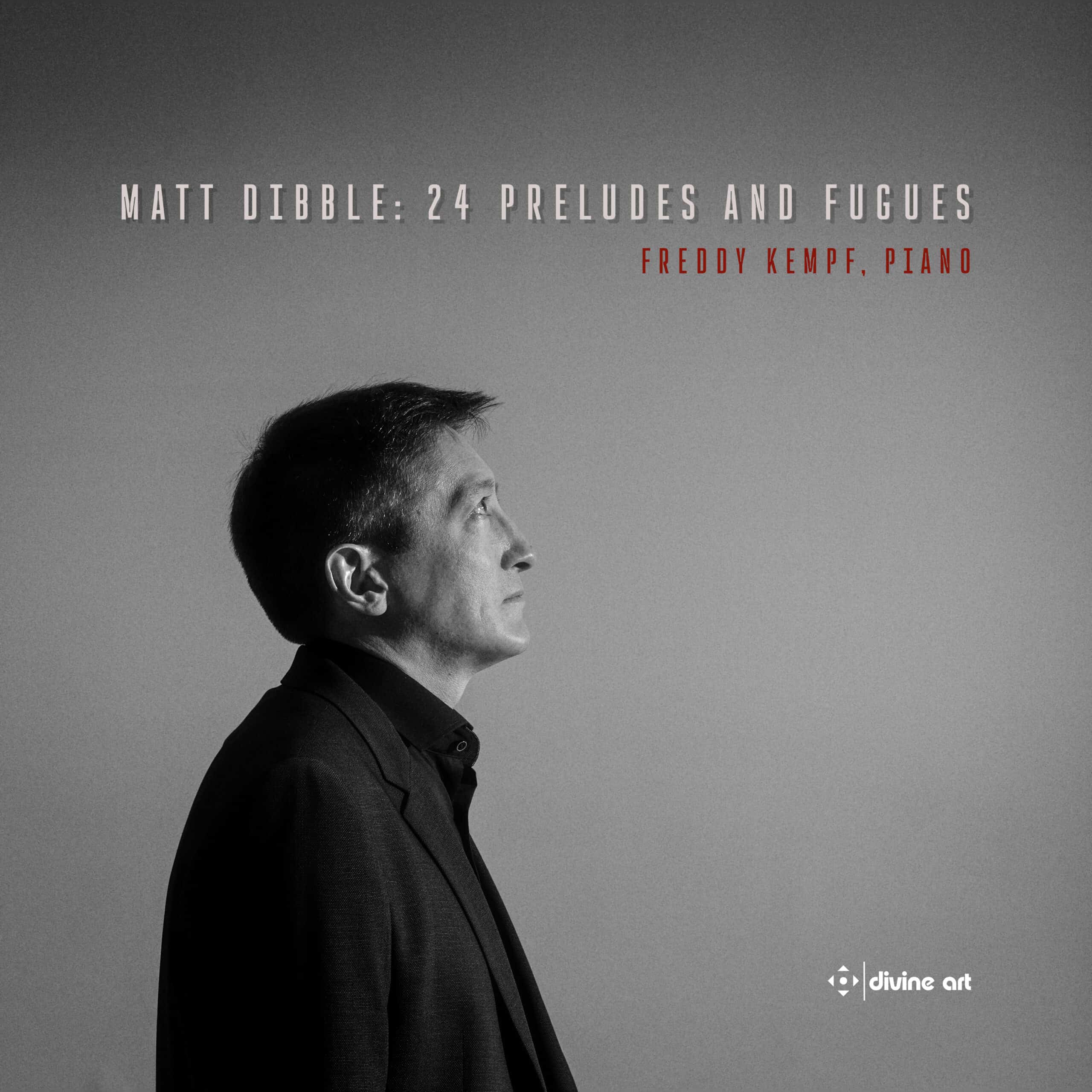Fanfare
From Divine Art comes the world premiere recording of the 24 Preludes and Fugues for piano by Matt Dibble (1980–2021). The London musician, self-described as “a song-writer/composer, multi-instrumentalist, arranger, and producer,” pursued a wide variety of genres, both classical and popular, often in tandem. Dibble was a member of the “punk-jazz band DOLLYman.” As a clarinetist, Dibble collaborated with the Italian guitarist Fabio Zambelli on three albums exploring jazz and free improvisation. Dibble’s life was cut short in May of 2021, when “he died unexpectedly, a rare victim of the AstraZeneca covid vaccine.” A few weeks prior to his death, Dibble completed his 24 Preludes and Fugues for piano, a project begun in 2015. According to Jon Hargreaves, the author of the liner notes for the Divine Art release: “Only a handful of close friends knew of the ‘Preludes and Fugues’….
There continued six years of very private composition, the set being finished within mere weeks of his passing. With its quasi-secrecy, the longevity of the project, and the incredible timing of its completion, the story behind this music feels like a romantic tragedy.” Indeed, this narrative evokes the creation of works such as the Mozart Requiem and Bruckner Ninth Symphony. But a visit to Matt Dibble’s website (mattdibblemusic.wordpress.com) reveals the composer made no secret of his work on the Preludes and Fugues. On November 13, 2017, he wrote: “Lastly, I’m currently on a composition journey of writing 24 Preludes and Fugues – in all keys – embracing Jazz and Classical idioms. I love to playaround with different modes of composition, including improvisation, and different techniques, for example atonal and pandiatonicism. I’ve written 7, so 17 to go! (Wish me luck..).” And, as part of his website bio: “My new solo album ‘Bedroom Pop’ will be released sometime in 2021. I am also in the middle of writing 24 Preludes and Fugues, inspired by Bach. I’m currently at number 19 (August 2020).” I’ll add that there seems to be no indication that when Dibble composed his 24 Preludes and Fugues he (unlike Mozart and Bruckner) was confronting his impending demise. To Hargreaves’s credit, he cautions: “Matt, equally a stoic in life, is better honoured if we focus on his music than if we give ourselves to circumstantial emotion.”
Hargreaves describes the harmonic progression of Dibble’s Preludes and Fugues: “Starting on middle D rather than C, they move around in circles of fifths, alternating major/minor (D major-A minor-E major-B minor, and so on). After coming full circle, the key centres swap to the alternate mode (D minor-A major-E minor-B major).” The sense of continuity is enhanced by (with some exceptions) each fugue concluding on the identical pitch of the ensuing prelude. The music reflects Dibble’s eclectic musical world. To be sure, the spirit of the Baroque, and Bach in particular, is present (the B♭-Minor Prelude is entitled “To J. S. Bach”). But so is jazz (and with it, the almost inevitable allusions to Debussy and Ravel, as well as a touch of Prokofiev), blues, pop, rock, Latin dance, and big-band standards. Dibble seems to allow his imagination to journey as it wishes, resulting in music that offers a compelling and rewarding variety, intimacy,expressiveness, and melodic beauty. The textures are generally spare and elegant, with a premium placed on clarity of articulation. While the general mood is one of introspection, Dibble also provides arresting moments of bravura expression, including the dancing final fugue, marked “Defiant, almost aggressively, positive and energetic.” These are lovely works that maintain interest and momentum during the course of their two-hour journey.
One of the pianists Matt Dibble hoped would perform his 24 Preludes and Fugues was Freddy Kempf (b. London, 1977). While the two never met, Dibble greatly admired Kempf’s artistry. And it is Kempf who premieres Dibble’s work on the Divine Arts release. After completing the recording, Kempf said: “I feel close to [Matt] because it really felt like the values that [he] paid attention to match some of my own.”
Kempf performs the Preludes and Fugues with technical panache, rich tone, lovely phrasing, and a marvelous grasp of the work’s ever-shifting moods and musical worlds. All told, this is a lovely recording.
@divineartrecordingsgroup
A First Inversion Company
Registered Office:
176-178 Pontefract Road, Cudworth, Barnsley S72 8BE
+44 1226 596703
Fort Worth, TX 76110
+1.682.233.4978












